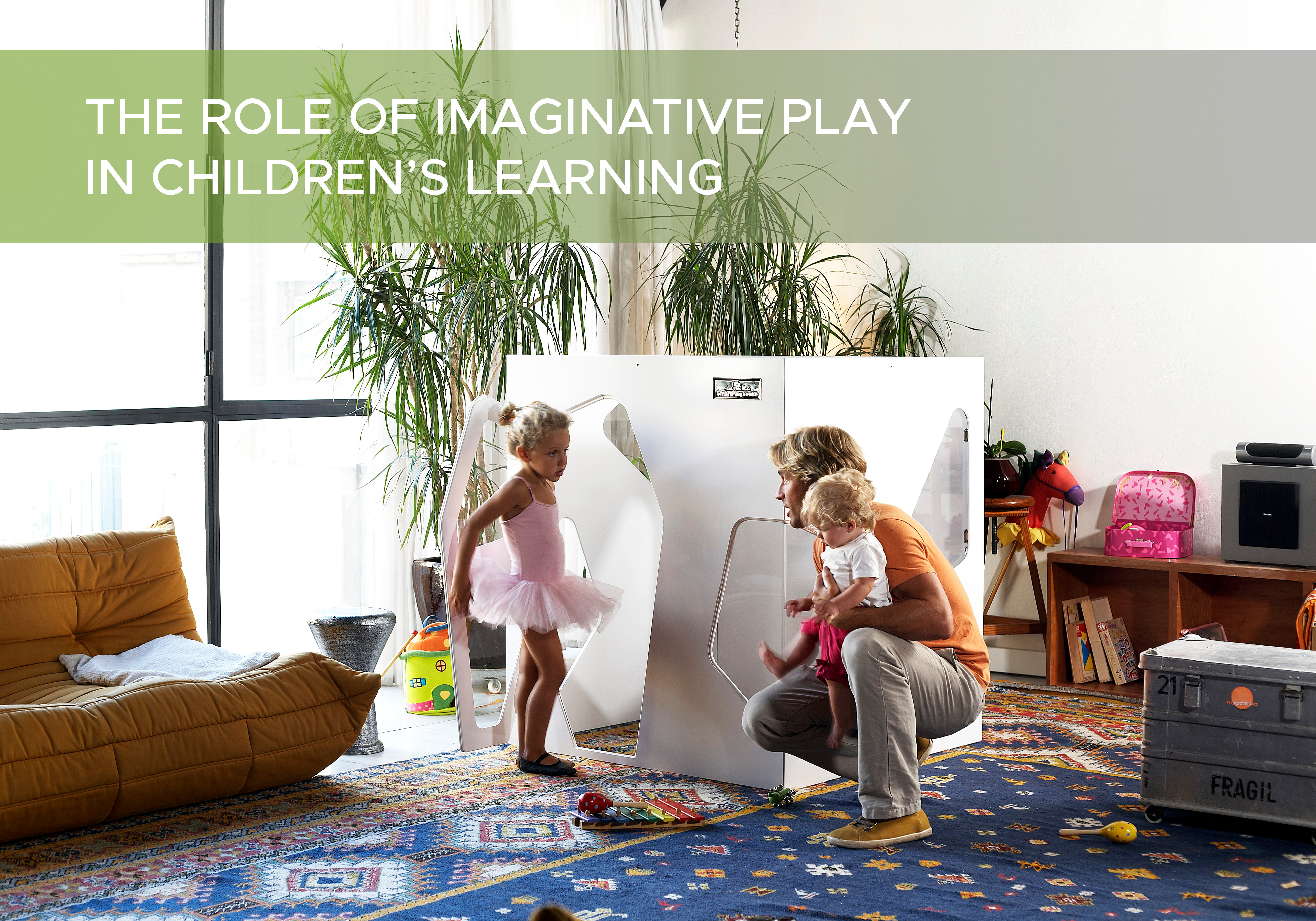

“Imaginative children can explore their thoughts and feelings more deeply and learn how to solve problems creatively.” - Psychology Today
Imaginative play, also referred to as “pretend play” or “make-believe play”, is a vital aspect of childhood development. In this article, we delve into the world of imaginative play and explore how it nurtures children’s creativity, cognitive skills, and social development.
The Benefits of Imaginative Play: Fostering Cognitive and Emotional Growth
Engaging in creative play offers a myriad of advantages for children’s holistic development:
Imaginative play helps cognitive Development: Problem-Solving and Critical Thinking Skills
Pretend play stimulates cognitive growth by encouraging children to think critically, solve problems, and make decisions. Through creative scenarios, they develop flexible thinking and expand their creative problem-solving abilities.
Language and Communication Skills: Building Vocabulary and Narrative Abilities
Immersed in imaginative play, children actively communicate and express themselves, enhancing their language skills, vocabulary, and storytelling abilities. Pretend play offers a platform for them to practice effective communication, verbal expression, and narrative construction.
Social and Emotional Development: Empathy and Relationship Building
 By assuming various roles in pretend scenarios, children develop essential social and emotional skills.
By assuming various roles in pretend scenarios, children develop essential social and emotional skills.
Imaginative play nurtures empathy, cooperation, negotiation, and conflict resolution, as they learn to understand others’ perspectives and navigate relationships.
Imaginative play as a way of Cultivating Creativity and Imagination: A Pathway to Innovation
Pretend play fuels children’s creativity and imagination, providing an outlet for self-expression and innovation. As they invent stories, characters, and worlds, their imaginative skills flourish, fostering a foundation for future creative endeavors.
Strategies to Encourage Pretend Play: Nurturing Your Child’s Imagination
Now that we understand the benefits of imaginative play, let’s explore practical strategies to encourage and support pretend play:
Exploring the Magic of Imaginative Play: Open-Ended Toys and Props Inspiring Endless Possibilities
Introduce open-ended toys and props that encourage creative play. Blocks, dolls, dress-up clothes, play kitchen sets, and art supplies offer limitless possibilities for children to express their creativity and imagination.
Designing a Playful Environment: Creating a Haven for Pretend Play
Create a dedicated play area that fosters imaginative play. Incorporate cozy cushions, blankets, and props that inspire creativity. Consider themed play spaces, such as a make-believe grocery store or a space-themed adventure corner.
Limiting Screen Time: Balancing Digital and Imaginative Play
To promote pretend play, establish reasonable boundaries for screen time. Encourage children to engage in hands-on play activities that stimulate their creativity instead of excessive reliance on screens.
Active Participation: Becoming a Play Partner
Become an active participant in your child’s imaginative play. Join them in their pretend scenarios, take on roles, and actively engage in their storytelling. Your involvement will nurture their imagination and strengthen the bond between you.
Cultivating Independence and Imagination Through Imaginative Play: Encouraging Unstructured Playtime
Allow unstructured playtime, where children have the freedom to explore their own ideas and create their own narratives. Avoid over-structuring playtime with too many rules or adult-directed activities. Unstructured play nurtures independence, self-discovery, and imagination.
Inspiring Imagination through Books and Stories: Reading for Creativity
Immerse your child in imaginative worlds by reading books that stimulate their creativity. Encourage them to retell stories or create their own tales based on their favorite characters or settings. Books provide a rich source of inspiration for pretend play.
Embrace the Magic of Imaginative Play: Fueling Growth and Creativity
 Creative play serves as a powerful catalyst for children’s cognitive, social, and emotional development. By embracing and encouraging pretend play, you provide a nurturing environment for their growth, creativity, and self-expression. So, let their imagination soar as they embark on magical adventures within their own vibrant worlds.
Creative play serves as a powerful catalyst for children’s cognitive, social, and emotional development. By embracing and encouraging pretend play, you provide a nurturing environment for their growth, creativity, and self-expression. So, let their imagination soar as they embark on magical adventures within their own vibrant worlds.
Nurture Creativity Today: Encourage Pretend Play with SmartPlayHouse
Unlock your child’s imagination and foster creativity by introducing them to the world of SmartPlayHouse. Combining the strategies from this article with a SmartPlayHouse playhouse, your child will experience transformative effects on their cognitive abilities, social skills, and emotional well-being. Watch their imagination flourish and grow within the captivating setting of a SmartPlayHouse, where endless possibilities come to life.


Leave a Reply